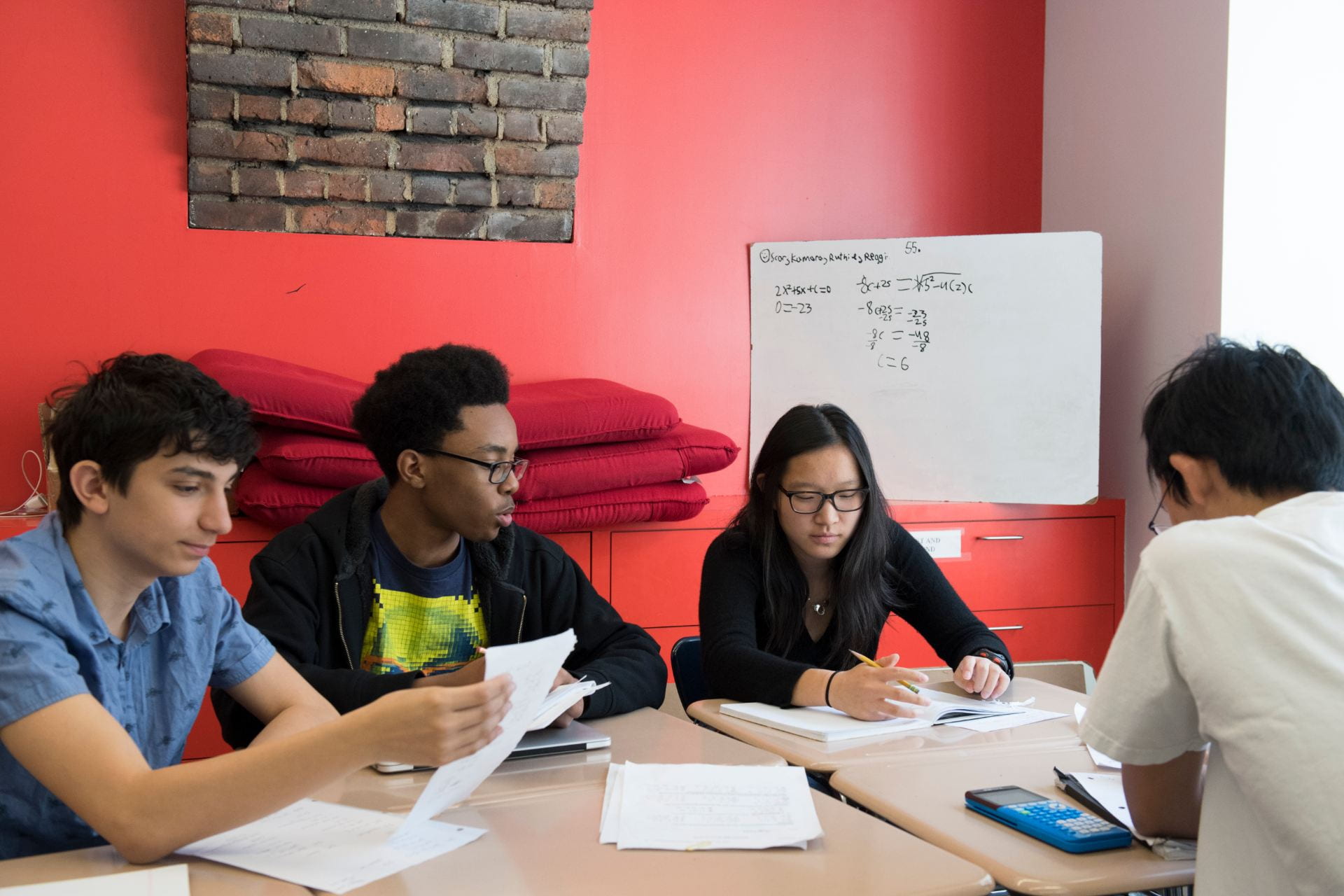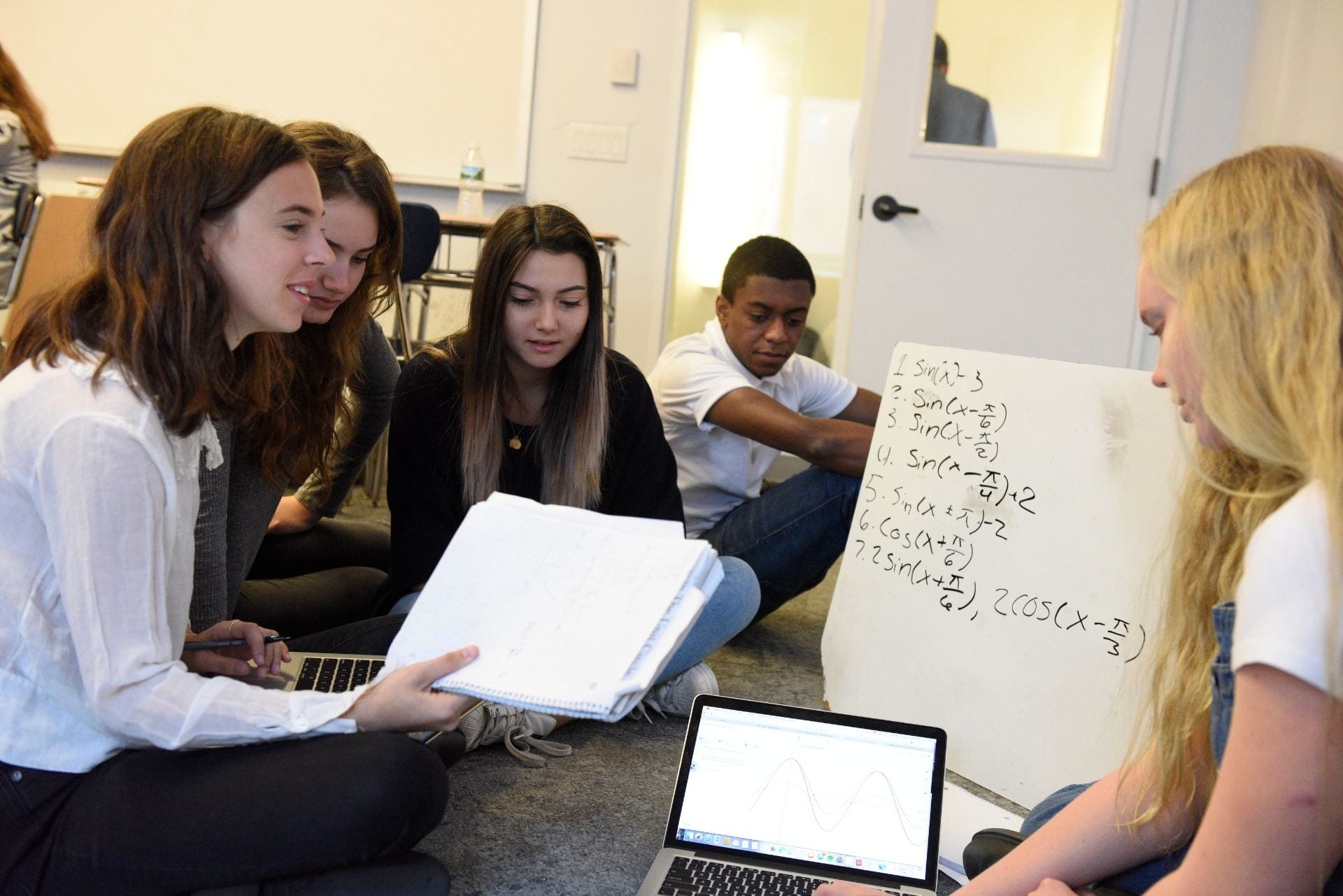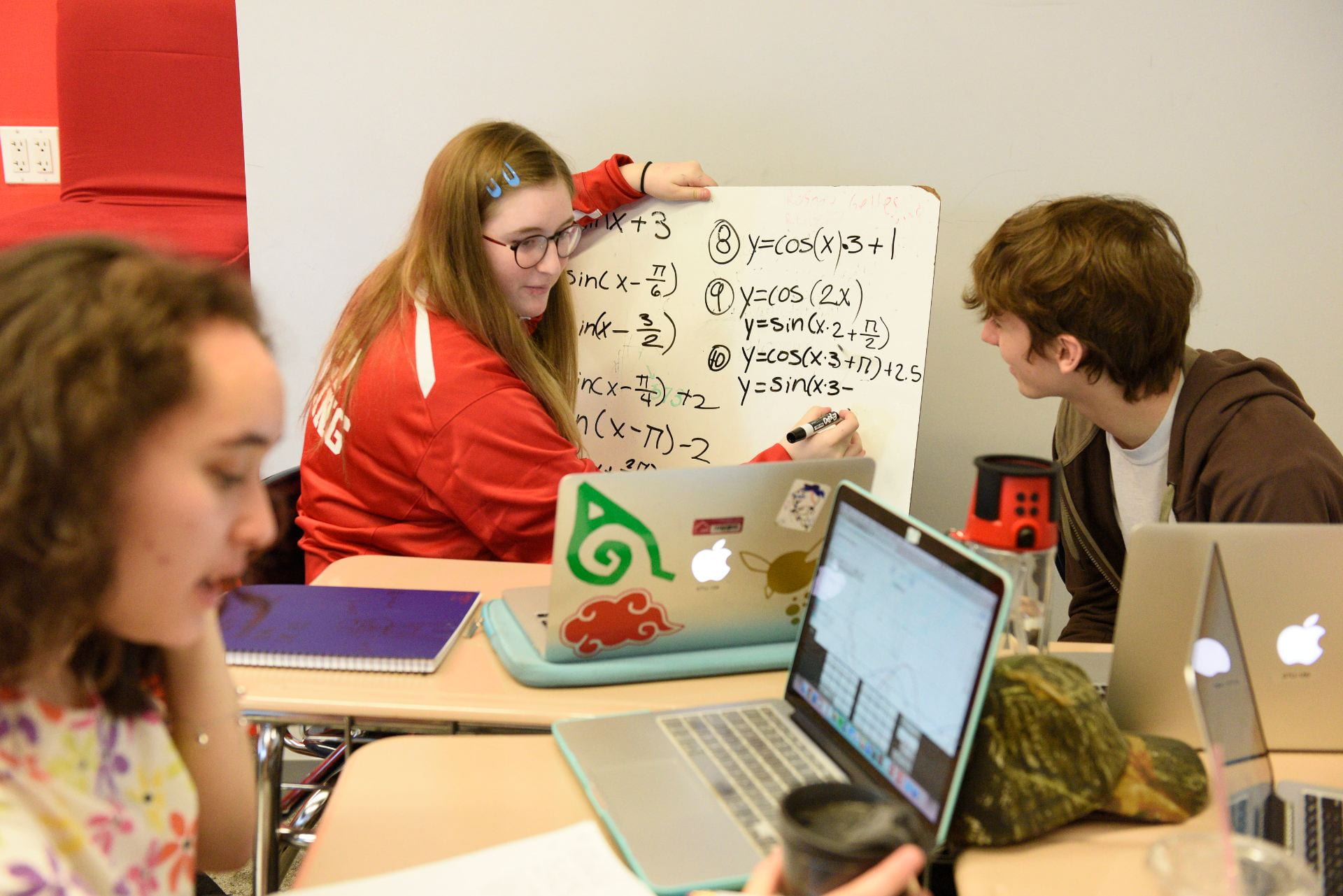The following are a set of questions and initial reflections that are framing my self-study inquiry. While these questions and reflections have an initial orientation towards students and subject matter, I think that they also have significant implications for my own practice as a teacher.
Thinking about race, class, and equity during Charlene’s Adult rED class a few weeks ago, I again come to the question of what is important to teach in math classes. What’s my purpose as an educator? Is it to prepare kids for college/the future/jobs? Liberal arts college? A job they love? A profession that will help them achieve the American dream? How do I balance the expectations (parents, students, other adults, society), needs, and what I think is important? SAT/ACT, future college classes, taxes, personal finance, stocks, retirement, statistics, data analysis, collaboration, confidence, useful math, fun with math, challenge, problem-solving, understanding/changing the world through/with math
These are the eternal questions in teaching mathematics. We compare our curriculum values to what happens in English classes, science classes, language classes. We have extra pressures – we have to prepare students for standardized tests and they rarely perform as well in math as they do in the verbal sections. Maybe we should just focus on the ACTs OR the SATs but not both. We also have to prepare them for calculus (WHY?!) and science classes and life. So many expectations based on skills and content, which makes it difficult to satisfy anyone/everyone.
Looking at the mathematics that most people come into contact on a regular basis, it’s generally not grounded in functions. I’ve noticed that most graphs aren’t the ones we typically study in HS math. So why are the ones we choose in HS math the important ones? Calculus, of course. Other types of higher level math? Physics.
What about algebra? Understanding that equations can be solved by “undoing” is also important. But why every type of function? Isn’t there more to math than solving equations, graphing and analyzing functions, writing equations to “model” a given word problem, and knowing something about Euclidean geometry? Getting kids to think logically can be done without proofs so can’t it be done without functions? Of course this is all theoretical since standardized tests and college expectations drive the HS math and therefore the MS and LS math curriculum. Where does the classical tradition of education fit in? Where do military needs fit in? Business needs? If we are truly a progressive school, shouldn’t I be teaching about data analysis rather than transformations of functions?
What would the math program and by extension my practice look like if…
- we didn’t have to worry about the SAT/ACTs?
- we didn’t have to prepare students for calculus?
- we didn’t have to spend so much time on transformations of functions?
- we had 2 years of requirements for all and electives for 2 years?
- we didn’t track/group kids?
I’m not even looking at the tracking program, just the content/goals. I have to make sure that equity is put forward as a goal in every aspect of what I consider. Getting into college matters as does being successful in college, getting a job after college, and being able to understand and use mathematics in every day life. Who will teach kids about what they should look for when comparing mortgage/refinance options? Or if they should even buy a home vs renting. And investing, understanding the stock market, retirement, loans. Aren’t we ill-equipping kids whose families can’t/won’t/don’t teach them about that stuff? Is Calculus (which most families can’t/won’t/don’t teach their kids) more important than life-necessary mathematics? Are all those other topics even considered part of math? As I’m sure folks would argue, science teachers don’t teach nutrition, and other things where science is involved in daily life. Also, does math education have to be a means to an end? Sometimes that’s what it feels like – either do math for the love and beauty of math or learn math as a tool for understanding the world. But it doesn’t have to be binary, there is a spectrum of options for the purpose and content of the HS math curriculum. We just have to decide what we value.






Manjula, thanks for digging into these questions, which can undoubtedly be explored through a variety of lenses. There are clear policy and program design issues that I hope we will continue to examine through the lens of our mission which centers our commitment to progressive practice and DEI work. There is also the lens of one’s personal pedagogical stance and how that stance and shifts in it can support ongoing growth in answering some of these questions. How front and center are these questions in your teaching practice and the life of the classroom? How would inviting them in through the purposeful design of learning experience reframe your connection to them and by extension your student’s awareness of impact of these questions. I would think that a pedagogy that moves this question of value front and center would have huge implications for how students engage in mathematical inquiry. Is there a set of deep and guiding questions that you want as the foundation for exploring mathematical concepts, skills and their relationship to understanding and describing the world? What then are these value laden questions? In naming them, what wold be the immediate challenges to your current pedagogical stance? What practices would they amplify? How might they better orient you to identifying the version of your teaching self that you want to move towards? Much here to explore.